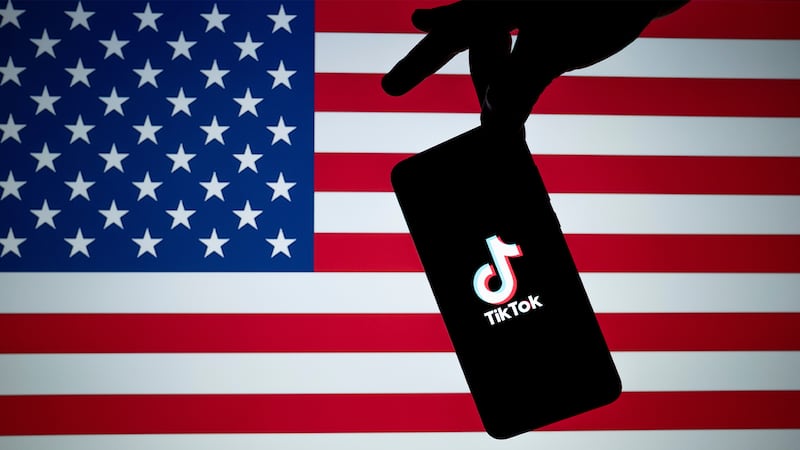
The Business of Fashion
Agenda-setting intelligence, analysis and advice for the global fashion community.

Agenda-setting intelligence, analysis and advice for the global fashion community.

Discover the most relevant industry news and insights for fashion’s e-commerce and technology professionals, updated each month to enable you to excel in job interviews, promotion conversations or perform better in the workplace by increasing your market awareness and emulating market leaders.
BoF Careers distils business intelligence from across the breadth of our content — editorial briefings, newsletters, case studies, podcasts and events — to deliver key takeaways and learnings tailored to your job function, listed alongside a selection of the most exciting live jobs advertised by BoF Careers partners.
Key articles and need-to-know insights for e-commerce and technology professionals today:
ADVERTISEMENT
1. How Coach Used Data to Make Its Tabby Bag a Hit

In 2021, Coach had set a strategic goal of appealing to what it dubbed a “timeless Gen-Z” customer. The company did some consumer segmentation and realised this was a shopper with classic style, who would invest in purchases and whom Coach felt it could win over. But Coach needed to figure out how to reach them.
Coach started meeting with shoppers to learn more about its target customer, and then Jennifer Yue, vice president of Coach strategy, sat down with Fabio Luzzi, head of data and analytics at Tapestry, to work out a plan. Using a dashboard the data team had built, they saw the Tabby was bringing in lots of young shoppers who then went on to have a high lifetime value for the brand.
Related Jobs:
Technology Stack Manager, Casablanca Paris — London, United Kingdom
Head of Service Delivery, Primark — Dublin, Republic of Ireland
CRM Senior Analyst, Tapestry — Shanghai, China
ADVERTISEMENT
2. Why Fashion Is Rushing to Create 3D Captures of Its Products

Brands can now quickly and routinely create ultra-detailed 3D captures of their products to use for design tasks, in their marketing, on their e-commerce sites and in augmented-reality experiences such as virtual try-on, with more applications still emerging. [...] Today, they can produce these 3D twins with as little as an iPhone, a lighted box to serve as a mini studio, a laptop and software from providers like Adobe.
The need for 3D imagery is growing as fashion expands into more virtual spaces. For brands to put versions of their products in video games or create immersive content for mixed-reality headsets like Apple VisionPro can require 3D models that developers can use. Last year, LVMH announced an expansion of its partnership with Epic Games, maker of the game Fortnite, as part of an effort to create virtual experiences for its brands and digital twins of its goods.
Related Jobs:
Digital & Marketing Assistant, Sarabande Foundation – London, United Kingdom
IT Service Desk Analyst, Burberry — Leeds, United Kingdom
Senior Programme IT Manager, Tory Burch — New York, United States
ADVERTISEMENT
3. Bytedance May Shut Down TikTok in US if Legal Options Fail

TikTok owner ByteDance would prefer shutting down its loss-making app rather than sell it if the Chinese company exhausts all legal options to fight legislation to ban the platform from app stores in the US, four sources said. The algorithms TikTok relies on for its operations are deemed core to ByteDance overall operations, which would make a sale of the app with algorithms highly unlikely, said the sources close to the parent.
A shut-down would have limited impact on ByteDance’s business while the company would not have to give up its core algorithm, said the sources [...] TikTok’s CEO Shou Zi Chew said the social media company expects to win a legal challenge to block legislation signed into law by President Joe Biden that he said would ban its popular short video app used by 170 million Americans.
Related Jobs:
E-Commerce & Digital Director, Cou Cou Intimates — London, United Kingdom
Staff Software Engineer, Gap Inc. — San Francisco, United States
Infrastructure Engineer, Ralph Lauren — Hong Kong
4. TikTok’s Chinese Counterpart, Douyin, Is Courting American Designers

TikTok’s imminent banishment in the US hasn’t stopped its parent company, ByteDance, from trying to lure American brands to sell on TikTok’s Chinese counterpart, Douyin. It’s already bagged one such brand: Bad Binch TongTong. The New York-based conceptual label — which has made waves with its dresses with exaggerated hooped and Octopus-shaped hemlines — is planning to launch a digital flagship store on Douyin in the next week.
At a seminar the company held in New York last month for a small group of prospective sellers, Douyin made its pitch to brands by outlining its solutions for the logistical challenges of selling in China. For starters, it ensures brands are authorised to sell in the region. It also has warehouses where merchants store their products for closer last-mile delivery, and a built-in cross-border payments feature for easy currency conversion. Thus far, Bad Binch TongTong is the first indie brand to take the bait, but it probably won’t be the last.
Related Jobs:
Miu Miu Digital Copywriter, Prada Group — Milan, Italy
Director of E-Commerce, Ermenegildo Zegna Group — New York, United States
E-Commerce Manager, Coach — Tokyo, Japan
5. The New Backlash Against Social Media, Explained

Social media’s psychological effects on children have been the subject of mounting scrutiny in recent weeks. Jonathan Haidt, a social psychologist at New York University, has provoked debates with his argument that the technology has disrupted childhood development and led to a surge in problems such as depression, anxiety and suicide. The view provides the basis for his new book, “The Anxious Generation: How the Great Rewiring of Childhood Is Causing an Epidemic of Mental Illness.”
On March 25, the day before the book’s publication, Florida’s Republican governor, Ron DeSantis, signed a bill that’s set to bar many children in the state from having social media accounts at all, one of the strongest sets of social media restrictions passed in the US to date. The science behind these fears is far from conclusive, however. Just as uncertain is what impact the debate, and laws like Florida’s, will have on social media and its users. Brands may not think about the matter much, but they are part of the content stream that keeps kids hooked, raising questions about how they should respond.
Related Jobs:
Web Project Manager, Another Community — London, United Kingdom
Digital Catalogue Specialist, Moncler — Milan, Italy
Assistant Site Merchandiser, Amiri — Los Angeles, United States
6. Why Luxury Is Warming Up to Lab-Grown Diamonds

In recent months, Prada, watchmaker TAG Heuer and LVMH-owned jeweller Fred have all unveiled new products featuring lab-grown stones. Prada revealed a jewellery collection in October featuring diamonds grown in the shape of its triangle logo. The month before, Fred introduced blue-hued diamonds crafted to reflect the play of sunlight on the sea. TAG Heuer debuted its first timepiece with lab-grown stones in 2022 and has since introduced novel variations, including one studded with yellow diamonds this January.
The limited number and size of these efforts show luxury still isn’t ready to trade mined diamonds for man-made ones at a large scale, even as more accessible parts of the jewellery market have fully embraced them. Rather, in each of these cases, the companies turned to lab-grown gems because they offered creative freedom that would be more costly, more time-consuming and generally more difficult — if not impossible — to achieve with their natural counterparts. [...] What’s driving luxury’s reluctance, though, is less the quality of the stones than the prestige and storytelling — or lack thereof — around them.
Related Jobs:
Digital Learning & Retail Excellence Specialist, Maison Margiela — Paris, France
Digital IT Product Director, Tiffany & Co. — New York, United States
CRM Manager, Kate Spade — Tokyo, Japan
7. Case Study | How to Turn Data Into Meaningful Customer Connections

Artificial intelligence could be the most powerful business tool in decades. But without the right data, it is useless. Similarly, brands are confronting a new reality where tech giants are implementing digital privacy measures and eliminating the third-party cookies advertisers relied on to track consumers, making it harder to target shoppers online. It is only making it more important for brands to have their own data on who their customers are and what they want.
What data really is, though, is just a means of understanding customers. For businesses that are able to put it to use, data can help them create the right products in the right numbers, and put them in front of the right shoppers at the right times and places. More companies are gathering psychographic data on customers’ beliefs and attitudes as well, hoping it can help them know their customers on a deeper level and allow them to forge emotional connections.
Related Jobs:
Technical Admin Assistant, House of CB — London, United Kingdom
Global E-commerce & Digital Director, 66°North — UK, NYC, Iceland or Copenhagen
Senior Workplace Tech Associate, Chalhoub Group — Riyadh, Saudi Arabia
8. Beauty E-Commerce Is Broken

As the beauty industry grew both in value and number of super users, fashion e-tailers rushed to add skincare, cosmetics and fragrances to their assortments, jostling against pure players for more market share. But now, many seem to have bitten off more than they chew. “Digital commerce is much less profitable than people originally expected it to be five years ago,” said Benjamin Bond, vice president of strategy and business development at store intelligence platform Simbe. (At time of interview, Bond was a principal in the consumer practice of the strategy firm Kearney.)
Net-a-Porter has cut down its selection from over 200 beauty brands in 2022 to just over 70 today, with a further slimming down expected for brands — many of the lines already removed from the site were generating less than $150,000 a year in sales, according to emails seen by The Business of Beauty. [...] To beat the odds, e-tailers need to either offer a truly unique proposition, or consider a more phygital approach. “If you want to sell beauty online, you need to offer samples, you need to do events, you need to create content … you must make the consumer experience unique,” said Joël Palix, founder of beauty consultancy Palix Unlimited.
Related Jobs:
Senior Ecommerce & Marketing Manager, By Dr. Vali — London, United Kingdom
Director of E-Commerce, On — Zurich, Switzerland
UX, UI and Motion Designers Professor, Fashion Institute of Technology — New York, United States
 Opens in new window
Opens in new windowSuccessful social media acquisitions require keeping both talent and technology in place. Neither is likely to happen in a deal for the Chinese app, writes Dave Lee.
TikTok’s first time sponsoring the glitzy event comes just as the US effectively deemed the company a national security threat under its current ownership, raising complications for Condé Nast and the gala’s other organisers.
The algorithms TikTok relies on for its operations are deemed core to ByteDance overall operations, which would make a sale of the app with algorithms highly unlikely.
The app, owned by TikTok parent company ByteDance, has been promising to help emerging US labels get started selling in China at the same time that TikTok stares down a ban by the US for its ties to China.